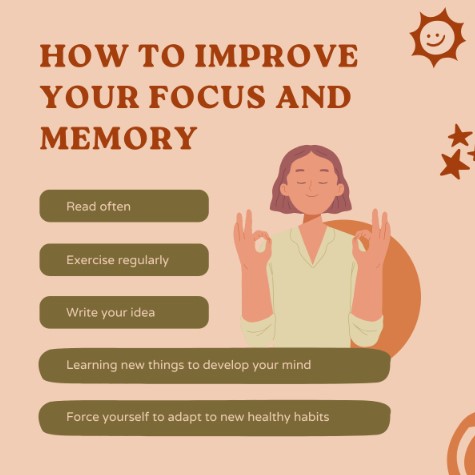Do you ever feel like your mind is racing, making it hard to focus? Or maybe you know someone who struggles to sit still, forgets things easily or acts without thinking. These are common signs of ADHD. But ADHD is more than just trouble paying attention.
It affects mental and physical health in many ways. People with ADHD may face challenges with emotions, sleep, and overall well-being. So, how does ADHD impact a person’s body and mind?
Emotional Struggles
ADHD makes it hard to control emotions. Small frustrations can feel overwhelming. A simple mistake might cause extreme embarrassment or anger. Many people with ADHD struggle with mood swings. They may feel excited one moment and frustrated the next. This can make social interactions difficult. Friends and family may not understand why emotions change so quickly.
Rejection can also be hard to handle. People with ADHD often feel like they are not good enough. They may believe they let others down, even when they try their best. This feeling, called rejection-sensitive dysphoria, can lead to sadness or anxiety. Over time, these emotional struggles can affect self-esteem.
Anxiety and Stress
Living with ADHD often brings chronic stress. Forgetting deadlines, losing things, and struggling to stay organized create constant worry. Many develop anxiety, feeling like they can never keep up. The ADHD ICD-10 codes provide a clinical framework for diagnosis. They help doctors understand different ADHD types.
ADHD also makes it harder to manage time. Many struggle with executive dysfunction, making it difficult to maintain routines that support well-being. Clinically, ADHD-related symptoms sometimes overlap with other mental health disorders categorized under f40-f49, highlighting the importance of accurate diagnosis and comprehensive treatment plans.
Some people feel overwhelmed by tasks and put them off until the last minute. This leads to rushing, panic, and more stress. Even with planning, many struggle to follow through on schedules. The constant feeling of being behind can make everyday life exhausting.
Sleep Problems
Many people with ADHD struggle with sleep. Their minds stay active long after bedtime. They may feel tired but find it impossible to relax. Even when they do fall asleep, they may wake up throughout the night. Poor sleep makes ADHD symptoms worse. It becomes even harder to focus, control emotions, and stay organized.
Some people with ADHD also have a condition called delayed sleep phase syndrome. Their bodies naturally want to stay up late and sleep in. This can make waking up for school or work a daily battle. Over time, lack of sleep can lead to mood problems, low energy, and poor health.
Impulsive Behaviors
ADHD affects self-control. Many individuals act impulsively without considering the consequences. This can lead to risky decisions, such as spending too much money, interrupting conversations, or engaging in unsafe activities. Children with ADHD may struggle to wait their turn or follow rules. Adults may have trouble making careful choices.
The tendency to act without thinking causes individuals to eat beyond what their body requires. Individuals with ADHD consume their meals rapidly until they finally recognize their internal signs of fullness. People tend to desire both sugar-based and processed foods.
Hyperactivity and Restlessness
Remember that having ADHD does not always mean being hyperactive because restlessness affects numerous individuals who have the condition. Individuals show their restlessness through repetitive foot movements and hand-to-object contact and seat position alteration.
Keeping still becomes difficult because of this state of physical and mental agitation. ADHD affects numerous individuals who experience difficulty enduring lengthy meetings or school periods. The urge to stand up and wander about while stretching becomes overwhelming for them.
Memory and Focus Problems

ADHD affects working memory. The ability to remember immediate information suffers because of this condition. In individuals with ADHD the inability to remember directions leads to mistaking personal belongings and conversations become harder to track. People with ADHD struggle to fulfill basic responsibilities even in situations as simple as remembering lunch or stove duty.
The ability to focus remains a significant point of difficulty for many patients. People with ADHD commonly experience their thoughts drifting away during discussions and both school and work-related meetings. The attempt to be attentive ends when their attention shifts toward nearby noises, thoughts, and physical movements around them.
Chronic Fatigue and Low Energy
ADHD creates fatigue among people despite regular rest. Too much work occurs within the brain when it attempts to focus along with planning activities and managing emotions. The mental process needs substantial quantities of energy. Many people with ADHD feel exhausted by the afternoon.
Low energy can also come from stress and poor sleep. When people are constantly worried or struggling to complete tasks, their bodies feel worn out. Some turn to caffeine or sugary foods for a boost, but this can make things worse in the long run.
Poor Physical Health
ADHD affects more than just the brain. It can lead to real physical health problems. Many people with ADHD forget to take care of themselves. They may skip meals, neglect exercise, or forget doctor’s appointments. Some struggle with dental hygiene because remembering to brush and floss feels like a chore.
Stress from ADHD can also lead to headaches, stomachaches, and muscle tension. The body reacts to constant worry and overstimulation. Over time, this stress can weaken the immune system, making people more likely to get sick.
Difficulties with Relationships
ADHD can make relationships harder. Forgetting important dates, interrupting during conversations, or struggling to listen can frustrate friends and family. People with ADHD may talk too much or not pick up on social cues. This can make them feel misunderstood.
Romantic relationships can also be challenging. A partner with ADHD may struggle to remember responsibilities or follow through with plans. This can create tension and misunderstandings. Open communication and understanding are key to building strong relationships.
Substance Abuse Risks
Some people with ADHD turn to alcohol, drugs, or smoking to cope with their symptoms. They may use these substances to calm their minds or feel more focused. Unfortunately, this can lead to addiction. Studies show that people with ADHD are at a higher risk of developing substance use disorders.
Getting proper treatment and support can help reduce this risk. Therapy, medication, and healthy coping strategies make a big difference. Recognizing the signs of substance abuse early is important for overall health.
Finding Support and Treatment
ADHD is challenging, but it does not have to control a person’s life. Many treatment options can help. Therapy can teach people how to manage emotions and develop better habits. Medication can improve focus and self-control. Lifestyle changes, such as exercise and a healthy diet, can also help manage symptoms.
Support from friends, family, and teachers makes a huge difference. A strong support system helps people with ADHD feel understood and encouraged. Small adjustments, like using reminders, setting routines, and breaking tasks into steps, can make daily life easier.
Conclusion
ADHD affects both mental and physical health. It can cause emotional struggles, sleep problems, and difficulties in relationships. It can also lead to poor health habits and chronic stress. But with the right support and strategies, people with ADHD can live happy, healthy lives. Understanding these challenges is the first step toward finding solutions and improving well-being.
FAQs
Can ADHD cause digestive problems?
Yes, ADHD can affect digestion. Stress and impulsive eating habits may lead to stomach discomfort, bloating, or irregular eating patterns, which can impact gut health.
Does ADHD affect coordination and motor skills?
Some people with ADHD struggle with fine motor skills, making tasks like handwriting or buttoning a shirt difficult. Others may have trouble with balance and coordination, leading to frequent clumsiness.
Can ADHD make sensory issues worse?
Yes, many people with ADHD are sensitive to noise, textures, or bright lights. These sensory challenges can make certain environments overwhelming and lead to discomfort or distraction.



